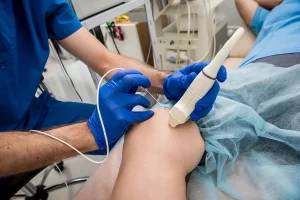Understanding Surgical Errors: Causes, Consequences, and Prevention

Surgery is often a critical step in the treatment of many medical conditions, from life-saving procedures to elective surgeries designed to improve quality of life. While advancements in medical technology and training have made surgeries safer than ever, errors still occur. Surgical errors can have serious, sometimes fatal, consequences for patients and can lead to long-lasting physical, emotional, and financial impacts. Understanding the causes, effects, and ways to prevent surgical errors is essential for both patients and medical professionals.
What Are Surgical Errors?
Surgical errors, also known as operative errors or surgical malpractice, occur when mistakes are made during surgical procedures that result in harm to the patient. These errors can be broadly categorized into different types:
- Wrong-Site Surgery – Operating on the wrong part of the body.
- Wrong Procedure – Performing a surgery different from what was intended.
- Wrong Patient – Operating on the incorrect patient, though rare.
- Surgical Instrument Errors – Leaving surgical instruments, sponges, or needles inside the patient.
- Anesthesia Errors – Mismanagement of anesthesia leading to complications such as overdosing, underdosing, or failure to monitor vital signs.
- Intraoperative Injuries – Accidental damage to organs, nerves, or blood vessels.
- Postoperative Errors – Failures in monitoring, infection control, or follow-up care.
These errors may result from human mistakes, communication failures, lack of experience, systemic problems in hospitals, or malfunctioning equipment.
Common Causes of Surgical Errors
Several factors contribute to surgical errors. Identifying these causes is crucial for implementing effective prevention strategies.
Human Factors
Human error is one of the leading causes of surgical mistakes. Surgeons and operating room staff may make errors due to fatigue, stress, or distraction. Even highly experienced professionals can make mistakes if they are overworked or not fully focused during critical moments.
Communication Breakdowns
Effective communication among the surgical team is essential. Miscommunication about the patient’s medical history, the procedure to be performed, or the correct site can lead to errors. Studies have shown that communication failures are responsible for a significant portion of adverse surgical events.
Inadequate Preoperative Planning
Failure to adequately review a patient’s medical history, imaging, or lab results can increase the risk of surgical errors. Detailed preoperative planning, including checklists and team briefings, is necessary to minimize mistakes.
Systemic and Organizational Issues
Hospital policies, staffing shortages, outdated equipment, or poor protocols can create an environment where errors are more likely to occur. Systemic issues, such as inadequate training programs or lack of supervision, may exacerbate the risk.
Technical and Equipment Failures
Modern surgeries often rely on complex equipment, from surgical robots to monitoring devices. Malfunctioning tools, improperly sterilized instruments, or technology failures can contribute to adverse outcomes during surgery.
Consequences of Surgical Errors
The consequences of surgical errors can be severe, affecting patients, their families, and healthcare institutions.
Physical and Medical Consequences
Surgical errors can lead to permanent injury, infection, organ damage, or even death. Patients may require additional surgeries to correct mistakes, resulting in longer recovery times and increased medical costs.
Emotional and Psychological Impact
Experiencing a surgical error can be traumatic. Patients may develop anxiety, depression, or post-traumatic stress disorder (PTSD) following the incident. Families also face emotional distress, especially in cases involving permanent injury or death.
Legal and Financial Repercussions
Surgical errors often result in medical malpractice claims. Hospitals and surgeons may face lawsuits, insurance claims, and financial liability. The legal process can be complex and lengthy, adding to the emotional burden for affected families.
Impact on Healthcare Professionals
Medical professionals involved in surgical errors may experience guilt, stress, or professional consequences such as suspension or loss of license. This phenomenon, often referred to as the “second victim” effect, highlights the need for support systems for healthcare workers.
Preventing Surgical Errors
Although surgical errors cannot be eliminated entirely, many measures can significantly reduce the risk.
Preoperative Checklists
The use of surgical safety checklists, as promoted by the World Health Organization, helps ensure that every step is double-checked before surgery. This includes verifying patient identity, the surgical site, and the planned procedure.
Enhanced Communication
Structured communication protocols, such as “time-outs” before surgery, ensure that all team members are aligned. Open communication channels allow staff to raise concerns without fear of reprisal.
Continuous Training and Education
Surgeons and operating room staff must engage in continuous professional development. Simulation training and regular competency assessments help maintain high standards of surgical performance.
Technological Assistance
Surgical robots, advanced imaging, and monitoring devices can improve precision and reduce human error. However, proper training in the use of these technologies is essential to avoid reliance errors.
Patient Involvement
Patients can play an active role in preventing surgical errors by asking questions, verifying their medical records, and confirming the procedure and site with their healthcare providers before surgery.
Reporting and Learning from Mistakes
A culture of transparency, where errors are reported and analyzed without fear of punishment, helps hospitals identify patterns and prevent recurrence. Learning from near-misses and adverse events strengthens overall patient safety.
When to Contact a Medical Malpractice Lawyer
If you or a loved one experiences harm due to a surgical error, it may be necessary to consult a medical malpractice lawyer or your local jurisdiction. For serious cases, contacting a Surgical Errors Lawyer in Connecticut can provide specialized assistance in handling claims related specifically to operative mistakes. These legal professionals specialize in handling cases involving surgical mistakes, helping patients understand their rights, gather evidence, and pursue compensation for medical expenses, pain and suffering, and long-term care needs.
Consulting a lawyer is particularly important in cases of severe injury, permanent disability, or death resulting from surgical errors. Prompt legal guidance ensures that critical deadlines, such as statutes of limitation, are met and that your case is handled with the expertise it requires.
Conclusion
Surgical errors are a serious concern in modern medicine, with consequences that affect patients, families, and healthcare providers alike. Understanding the types, causes, and preventive measures of surgical errors can empower patients and improve hospital safety standards. While modern medical practices have greatly reduced the likelihood of mistakes, vigilance, effective communication, and continuous improvement are key to minimizing risks.



